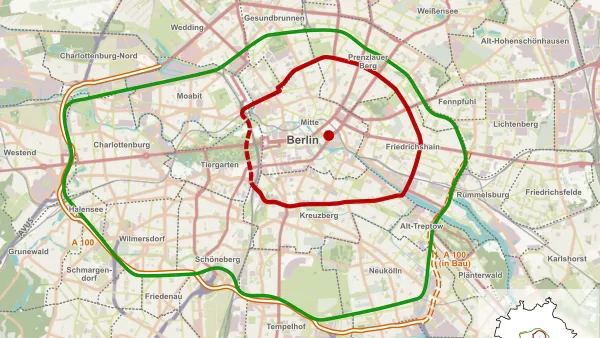Michigan's Mackinac Island has been car-free since 1898. GOOD Magazine pays a visit to the island and finds that far from being Luddite, the island is very progressive, from extensive wifi to hydroelectric power.
"The automobile ban goes back to 1898, when residents of the 4.4 square-mile island (the name of which is pronounced Mackinaw) voted to keep the place car-free. Other laws are in place keep out fast food chains (and, of course, drive-thrus) and franchises-with the exception of a lone Starbucks-and ensure that new buildings adhere to a rigid, era-specific aesthetic. You can see it on the walls of the island's Grand Hotel-one of the only remaining all wood-beam structures in the United States-which boasts an innovative, energey-efficient heating and cooling system, and whose owners are working toward LEED certification and the incorporation of wind turbines. It represents an overall effort to embrace the technologies that improve the quality of life and eschew those that compromise it. And, strangely close to Detroit, it might offer a vision of a hyper-local, post-automobile world, one that seems eerily unchanged by the apparition of cars."
FULL STORY: LOOK: The Motorless City

Planetizen Federal Action Tracker
A weekly monitor of how Trump’s orders and actions are impacting planners and planning in America.

Maui's Vacation Rental Debate Turns Ugly
Verbal attacks, misinformation campaigns and fistfights plague a high-stakes debate to convert thousands of vacation rentals into long-term housing.

Restaurant Patios Were a Pandemic Win — Why Were They so Hard to Keep?
Social distancing requirements and changes in travel patterns prompted cities to pilot new uses for street and sidewalk space. Then it got complicated.

In California Battle of Housing vs. Environment, Housing Just Won
A new state law significantly limits the power of CEQA, an environmental review law that served as a powerful tool for blocking new development.

Boulder Eliminates Parking Minimums Citywide
Officials estimate the cost of building a single underground parking space at up to $100,000.

Orange County, Florida Adopts Largest US “Sprawl Repair” Code
The ‘Orange Code’ seeks to rectify decades of sprawl-inducing, car-oriented development.
Urban Design for Planners 1: Software Tools
This six-course series explores essential urban design concepts using open source software and equips planners with the tools they need to participate fully in the urban design process.
Planning for Universal Design
Learn the tools for implementing Universal Design in planning regulations.
Heyer Gruel & Associates PA
JM Goldson LLC
Custer County Colorado
City of Camden Redevelopment Agency
City of Astoria
Transportation Research & Education Center (TREC) at Portland State University
Jefferson Parish Government
Camden Redevelopment Agency
City of Claremont




























